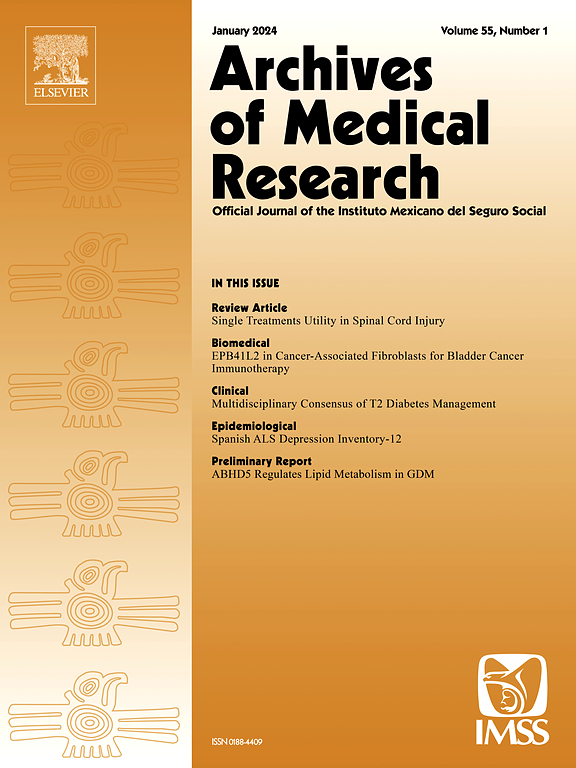Humoral immune response to SARS-CoV-2 vaccines in patients with autoimmune rheumatic diseases
IF 3.4
3区 医学
Q1 MEDICINE, RESEARCH & EXPERIMENTAL
引用次数: 0
Abstract
Background
Patients with autoimmune rheumatic diseases (ARD) are at increased risk of infection due to their impaired immune response, which also reduces vaccination efficacy. Although several studies have evaluated the serological response to SARS-CoV-2 mRNA-based vaccines in patients with ARD, limited information on immune responses to other vaccination platforms is available.
Aims
This observational prospective study aims to investigate the humoral immune response to different SARS-CoV-2 vaccines in patients with ARD.
Methods
Total 66 patients with ARD who were scheduled to receive any SARS-CoV-2 vaccine (Gam-COVID-Vac; AZD1222; BBIBP-CorV; mRNA-1273; BNT162b2 and Ad5-nCoV) were enrolled in the study. We analyzed the humoral immune response elicited against the spike receptor-binding-domain (RBD) of SARS-CoV-2 at 0 and 14 ± 2 d after the first vaccine dose and at 0 ± 1, 21–45, and 180 d after the second one. Titers were also measured in patients who received an additional dose of vaccine.
Results
After the second dose of the vaccine, 70.5 % experienced seroconversion. The type of vaccine affected serological responses. BBIBP-CorV resulted in lower seroconversion rates, while mixed vaccinations increased anti-RBD titers. Other factors impacting seroconversion were higher prednisone doses, biological therapy, and hypertension. Patients treated with Rituximab had the lowest seroconversion rate. Regression analysis revealed an 89.0 % lower probability of seroconversion for BBIBP-CorV recipients and an 88.0 % lower probability for those with hypertension. An additional dose increased seroconversion to 85.7 %.
Conclusions
Two-dose vaccination schemes exhibited a 70.5 % seroconversion rate to the SARS-CoV-2 vaccine. An additional dose increased this rate to 85.0 %. Reduced humoral immune responses were associated with BBIBP-CorV, prednisone higher doses, and biological therapy.
自身免疫性风湿病患者对SARS-CoV-2疫苗的体液免疫反应
自身免疫性风湿病(ARD)患者由于免疫应答受损,感染风险增加,这也降低了疫苗接种的效果。尽管有几项研究评估了ARD患者对SARS-CoV-2 mrna疫苗的血清学反应,但关于其他疫苗接种平台的免疫反应的信息有限。本观察性前瞻性研究旨在探讨ARD患者对不同SARS-CoV-2疫苗的体液免疫反应。方法对66例计划接种SARS-CoV-2疫苗(Gam-COVID-Vac;AZD1222;BBIBP-CorV;信使rna - 1273;BNT162b2和Ad5-nCoV被纳入研究。我们分析了第一次接种疫苗后0、14±2天和第二次接种疫苗后0±1、21 ~ 45和180 d对SARS-CoV-2刺突受体结合域(RBD)的体液免疫应答。还测量了接受额外剂量疫苗的患者的滴度。结果第二次接种后血清转化率为70.5%。疫苗类型影响血清学反应。BBIBP-CorV导致较低的血清转换率,而混合接种可提高抗rbd滴度。影响血清转化的其他因素有高剂量强的松、生物治疗和高血压。接受利妥昔单抗治疗的患者血清转化率最低。回归分析显示,BBIBP-CorV受体血清转化概率降低89.0%,高血压患者血清转化概率降低88.0%。再加一剂可使血清转化率提高到85.7%。结论两剂接种方案对SARS-CoV-2疫苗的血清转化率为70.5%。再加一剂,这一比率增加到85.0%。体液免疫反应的降低与BBIBP-CorV、高剂量强的松和生物治疗有关。
本文章由计算机程序翻译,如有差异,请以英文原文为准。
求助全文
约1分钟内获得全文
求助全文
来源期刊

Archives of Medical Research
医学-医学:研究与实验
CiteScore
12.50
自引率
0.00%
发文量
84
审稿时长
28 days
期刊介绍:
Archives of Medical Research serves as a platform for publishing original peer-reviewed medical research, aiming to bridge gaps created by medical specialization. The journal covers three main categories - biomedical, clinical, and epidemiological contributions, along with review articles and preliminary communications. With an international scope, it presents the study of diseases from diverse perspectives, offering the medical community original investigations ranging from molecular biology to clinical epidemiology in a single publication.
 求助内容:
求助内容: 应助结果提醒方式:
应助结果提醒方式:


